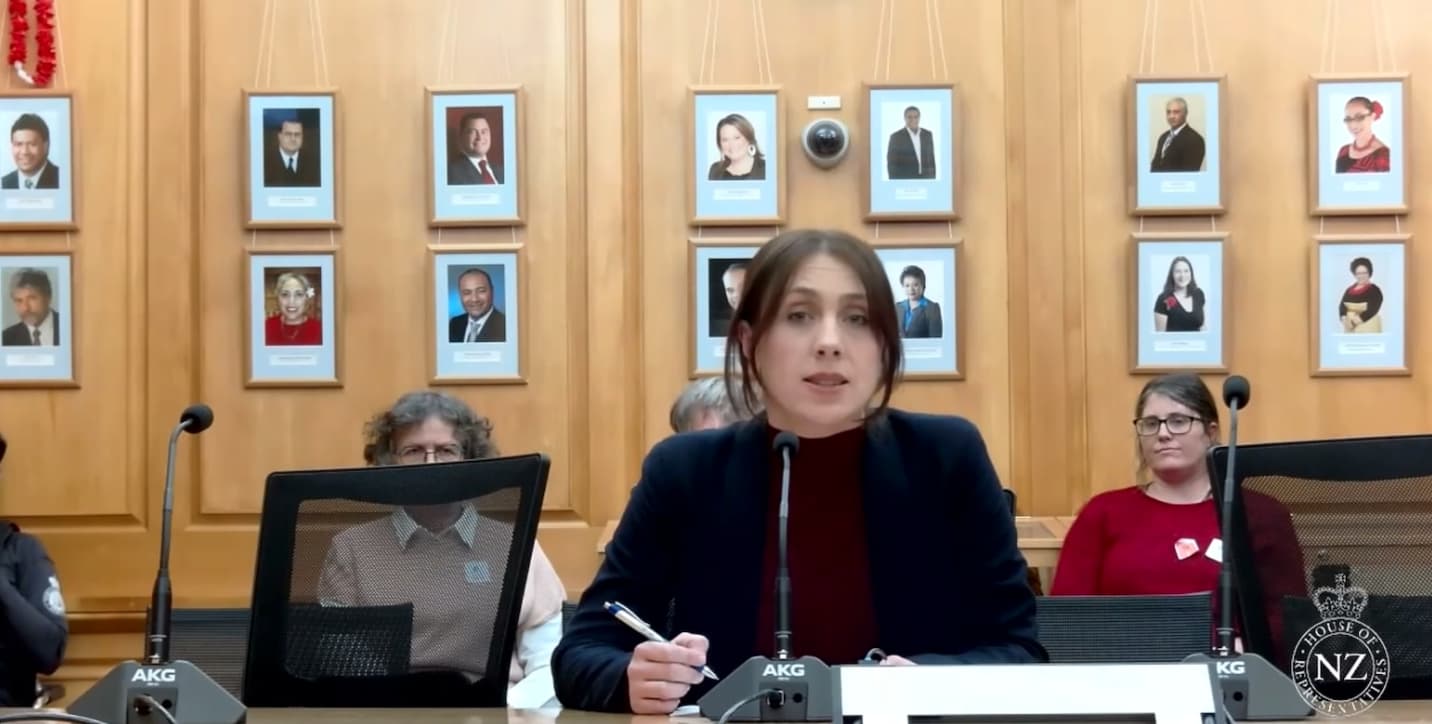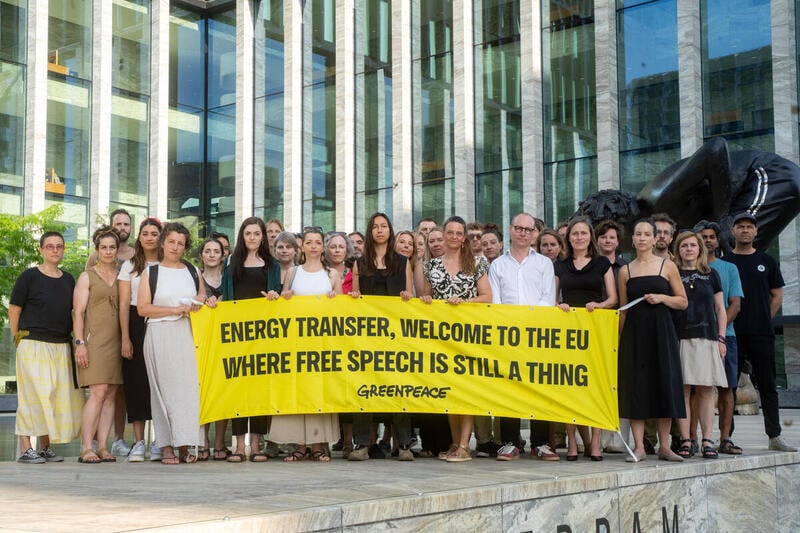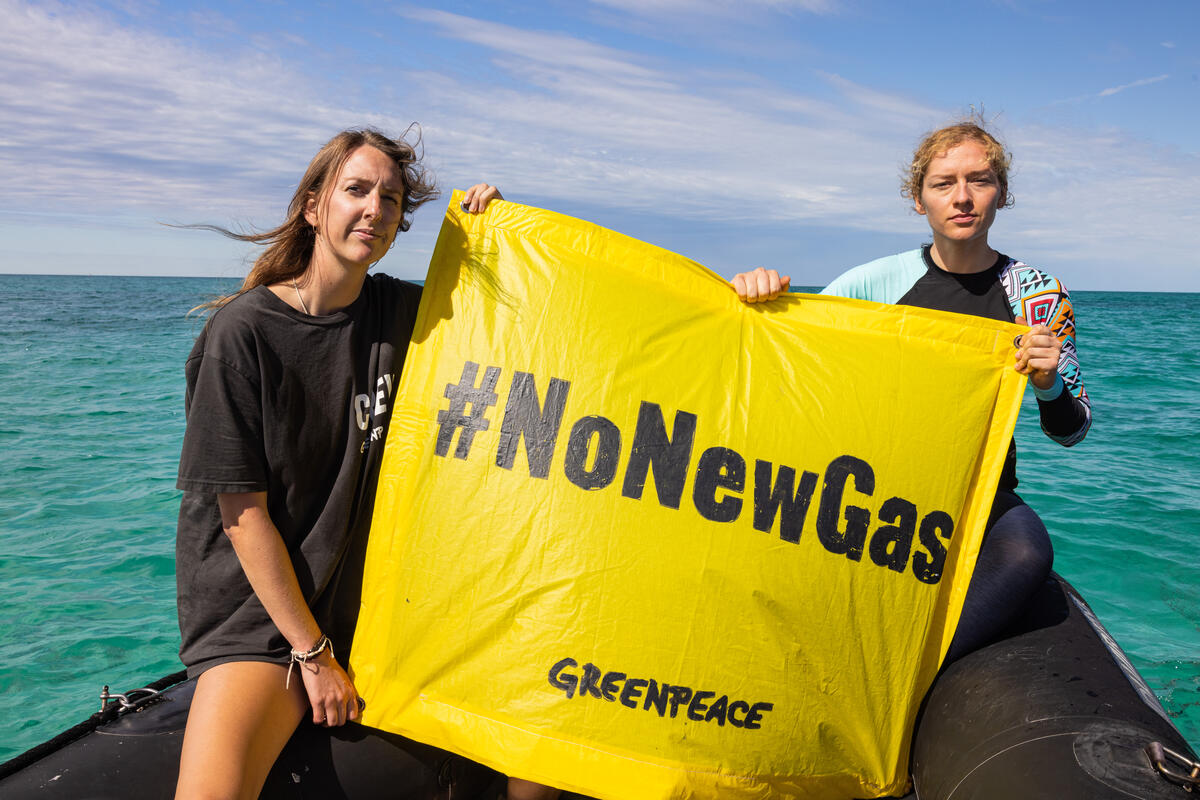Greenpeace strongly opposes the Fast Track Approvals Bill. The draft legislation is anti-democratic, anti-transparency and creates vulnerability to corruption. It lacks any semblance of environmental protection, and in fact, removes existing protections.
The vast majority of people in New Zealand care deeply about protecting nature. In facing the urgent threats to nature and the climate the actions we take today are crucial. But the Luxon Government has introduced what could be the single worst law ever passed for the environment.
The new ‘Fast-track Approvals Bill’ would give just three Ministers the power to approve or deny development projects. They would avoid the usual checks and balances that are in place to protect rivers, land, the ocean, and communities.
The draft Bill is designed to grant almost untrammelled power to Ministers to grant consents for projects they perceive to be significant, at the exclusion of existing laws, democratic participation and transparency, and at the expense of the environment. Greenpeace Aotearoa does not, and could not, support a Bill with this objective, however drafted.
Read the Greenpeace fast-track submission
Listen to the Greenpeace fast-track oral submission
Fast Track Approvals Bill Oral Submission
Tēnā koutou katoa.
Thank you for hearing my submission today.
On behalf of Greenpeace Aotearoa, I submit that the Fast-Track Approvals Bill is a one-stop shop for undermining democracy, removing public participation, and declaring war on nature.
As you’ll have seen in our written submission, Greenpeace opposes the Bill in its entirety because it is anti-democratic, anti-transparency and creates vulnerability to corruption. It lacks any semblance of environmental protection and in fact, removes existing protections.
The Government has suggested that it has a mandate for the sweeping changes set out in this Bill, but it does not.
New Zealanders may have voted for a change of Government. But they did not vote to have the forests and oceans of Aotearoa turned into open cast mines, to have their rivers and lakes turned into sewers or to condemn precious wildlife to extinction.
They certainly did not vote to rescind their right to have a say on industrial developments slated for their neighbourhood – which is a worrying consequence of this Bill.
New Zealanders care deeply about nature, and that is why a host of environmental regulations and other safeguards exist to protect it.
It is why we have seen an overwhelming response to this Bill, including the 14,986 people who submitted via the Greenpeace website that I am representing today.
I will not provide a provision-by-provision critique of the Bill because it is clear that the Government’s objectives with it are to override the general law, exclude community voices and place almost unchecked power in the hands of Ministers.
Instead, I would like to use the example of Trans Tasman Resources’ bid to mine the seabed of the South Taranaki Bight to illustrate how, if passed, the Fast-Track Approvals Bill would make a mockery of public participation, of democracy and of the judicial system.
We know that TTR has been invited to apply for the fast-track process.
This despite the fact that its proposed seabed mining project has been virtually unanimously opposed by the local community – by iwi, by environmental groups, by the fishing industry, and the local council.
TTR proposes to dig up 50 million tonnes of seabed each year to mine for iron sand and dump the majority of it back into an area of ocean that is home to endangered seabirds, rare pygmy blue whales and Māui dolphins.
Over ten years and based on expert evidence of environmental and Tiriti impacts, all the courts in the land have come to the highly considered conclusion that Trans Tasman Resources’ application does not meet the standards required to proceed.
If TTR’s project were listed in Part A of Schedule 2, the Fast-Track Approvals Law would override years of considered decision-making with the flourish of a pen.
Expert evidence, public participation and scrutiny by the courts – these are the processes by which our society decides what development is and is not appropriate.
If passed into law, the Fast-Track Approvals Bill would completely undermine these processes. It would open the door for development, not in the name of the public good but, in the name of whoever lobbies hardest.
The combination of a concentration of power in the hands of just three Ministers, broad discretions and the absence of transparent process in decision-making creates fertile ground for the corruption of decision-making. Those who want their projects to go ahead will be incentivised to curry favour and influence with officials, elected representatives, and those close to them.
This is not consistent with the kind of democratic process that New Zealanders currently value. Indeed laws of this nature promote practices that are corrosive to democracy.
Seabed mining is just one example of the many controversial developments which could get the green light if this Bill were passed.
Indeed, we submit that it is deeply irresponsible that the Government will not entrust the public or even this Committee with the knowledge of which projects will be listed in the Bill. Minister Bishop’s justification – that it would “overwhelm” the committee – is frankly patronising and shows contempt for both you and the public.
In conclusion, the Fast-Track Approvals Bill is designed to grant almost unfettered power to a handful of Ministers to grant consents for projects they personally perceive to be significant at the exclusion of existing laws, democratic participation and transparency, and at the expense of the precious places and wildlife that New Zealanders care deeply about. Greenpeace does not, and could not, support a Bill with this objective, however drafted.
Therefore we submit that the Bill should be thrown out in its entirely.
Now I’d be happy to answer any questions you have on our submission. Thank you for your time.




